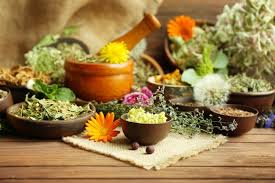Personal Hygiene 101
Our personal hygiene 101:
Personal hygiene refers to the practices and habits that help maintain cleanliness and good health for an individual. Proper hygiene is essential for preventing the spread of disease, promoting overall wellbeing, and fostering positive social interactions. While hygiene practices can vary somewhat across cultures, there are some fundamental elements that are universally recognized as important for personal cleanliness and health.
One of the most basic and crucial hygiene practices is regular handwashing. Our hands come into contact with countless surfaces and objects throughout the day, accumulating bacteria, viruses, and other pathogens. Washing hands thoroughly with soap and water for at least 20 seconds helps remove these potentially harmful microorganisms. It's especially important to wash hands before preparing or eating food, after using the bathroom, when caring for someone who is ill, and after coughing, sneezing, or blowing one's nose. In situations where soap and water aren't available, using an alcohol-based hand sanitizer can be an effective alternative.
Oral hygiene is another key component of personal cleanliness. Brushing teeth at least twice daily with fluoride toothpaste helps remove plaque and food particles, preventing tooth decay and gum disease. Flossing at least once a day is also crucial for removing debris between teeth where a toothbrush can't reach. Regular dental check-ups and cleanings are important for maintaining oral health and catching any issues early. Some people also use mouthwash to freshen breath and provide additional protection against bacteria.
Bathing or showering regularly is essential for keeping the body clean and odor-free. How often one needs to bathe can depend on factors like climate, activity level, and personal body chemistry. Generally, most people benefit from bathing daily or every other day. Using soap or body wash helps remove dirt, sweat, and dead skin cells. Special attention should be paid to areas prone to bacterial growth, such as underarms, groin, and feet. After bathing, it's important to dry off thoroughly, as damp skin can promote fungal growth.
Proper hair care is another aspect of personal hygiene. Hair should be washed regularly to remove oil, dirt, and dead skin cells from the scalp. The frequency of washing can vary depending on hair type and personal preference, but most people benefit from washing their hair every 2-3 days. Using conditioner can help keep hair soft and manageable. Regular haircuts or trims can also contribute to a neat and tidy appearance.
Skincare is an important part of hygiene that goes beyond just cleanliness. Keeping skin clean and moisturized helps maintain its health and appearance. This can involve using gentle cleansers, exfoliating occasionally to remove dead skin cells, and applying moisturizer to keep skin hydrated. Sun protection is also crucial for skin health, so using sunscreen when exposed to UV rays is recommended.
Nail care is often overlooked but is an important part of personal hygiene. Keeping nails clean and trimmed prevents the accumulation of dirt and bacteria. Regularly washing hands and using a nail brush can help keep nails clean. Trimming nails straight across and gently rounding the tips can help prevent ingrown nails.
Wearing clean clothes is another essential aspect of personal hygiene. Clothes absorb sweat, dead skin cells, and environmental contaminants, so they should be washed regularly. Undergarments, socks, and clothes worn close to the skin should be changed daily. Shoes should also be allowed to air out between wears to prevent the growth of odor-causing bacteria.
Menstrual hygiene is a specific but important aspect of personal hygiene for many individuals. This involves using appropriate sanitary products, changing them regularly, and maintaining cleanliness during menstruation. Proper disposal of used sanitary products is also important for both personal and environmental hygiene.
While physical cleanliness is a large part of personal hygiene, it also extends to habits that promote overall health. Getting adequate sleep, staying hydrated, and maintaining a balanced diet all contribute to bodily health and can affect aspects of hygiene like body odor and skin condition.
Personal hygiene also has important social implications. Good hygiene practices contribute to a neat and clean appearance, which can boost self-confidence and make positive impressions in social and professional settings. On the other hand, poor hygiene can lead to social stigma and negatively impact relationships and career opportunities.
It's worth noting that while good hygiene is important, it's possible to take it too far. Excessive washing or use of antimicrobial products can disrupt the skin's natural protective barrier and beneficial microbial flora. This can lead to dry, irritated skin and potentially increase susceptibility to infections. A balanced approach to hygiene that maintains cleanliness without being overly harsh is generally the best approach.
For individuals with certain health conditions or disabilities, maintaining personal hygiene can be challenging. In these cases, adaptive tools or assistance from caregivers may be necessary to ensure good hygiene practices are maintained.
Education about proper hygiene practices is crucial, especially for children. Teaching good hygiene habits from a young age can help establish lifelong practices that promote health and wellbeing. Schools often play a role in this education, but parents and caregivers are typically the primary source of hygiene education for children.
In conclusion, personal hygiene encompasses a wide range of practices that contribute to individual health, social interactions, and overall quality of life. From basic handwashing to more complex skincare routines, these habits play a crucial role in preventing disease, maintaining health, and fostering positive self-image and social interactions. While specific practices may vary across cultures and individuals, the fundamental goal of personal hygiene remains the same: to promote cleanliness, health, and wellbeing.




Comments
Post a Comment